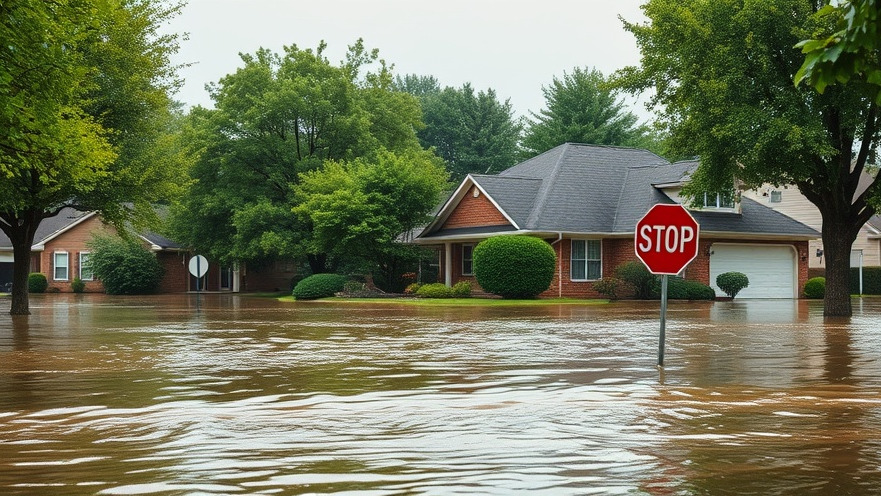
Understanding the Risks: Are You Prepared for Natural Disasters?
As Marylanders, we face a variety of natural disasters from torrential floods to intense hurricanes. While we cannot control nature, we can certainly prepare for it. This article will help you ensure your insurance coverage is adequate to protect your home and well-being from these natural threats.
What Does Standard Home Insurance Cover?
It's imperative to understand that standard homeowners and renters insurance policies often fall short when it comes to covering damages from natural disasters. For instance, while most of these policies provide coverage for damages due to fires—including wildfires— and certain types of water damages, many do not include coverage for floods. In fact, for flood damage, a separate flood insurance policy is typically needed.
Flood Insurance: An Essential Coverage
Flooding is a significant concern for homeowners, particularly in low-lying areas. Unfortunately, over 20% of flood insurance claims are filed by people living outside high-risk zones. If your home is in a federally designated floodplain and you have a federal mortgage, flood insurance is mandatory. However, even without a mortgage requirement, investing in flood insurance can provide peace of mind. Check your property’s flood risk via FEMA’s Flood Map Service Center to understand your exposure to this peril.
Hurricane Coverage: Do You Know Your Limits?
When hurricane season hits, Marylanders need to be prepared. While homeowners insurance typically covers wind damage resulting from hurricanes, it may come with a hefty deductible. For example, if your home is valued at $400,000, a 3% deductible would require you to pay $12,000 before the insurance kicks in. It's crucial to thoroughly review your policy with an agent to ensure you are aware of not only the coverage but also the limits and deductible amounts in the event of severe weather damage.
Are You Protected Against Wildfires?
Wildfires can also pose a significant threat, even in regions not traditionally known for them. Fortunately, standard homeowners insurance generally covers damages from fires, including wildfires. However, be aware that other related perils, such as mudslides triggered by rain after a fire, may not be covered. It’s wise to confirm inclusions and exclusions with your insurance provider to eliminate uncertainties regarding your coverage.
Actionable Steps to Enhance Your Coverage
Now that you know what natural disasters your insurance may or may not cover, what can you do to protect yourself more effectively?
Read and Understand Your Policy: First and foremost, read through your policy document thoroughly. Make it a point to identify what is covered and what is not. Engage your insurance broker or agent for clarifications.
Consider Additional Coverage: Evaluate if an umbrella policy or other supplementary insurance products could fill gaps in your current coverage.
Perform a Home Inventory: Document your possessions and property through photos or a video inventory to ease the claims process in case of an event.
Common Misconceptions About Disaster Coverage
One common misconception is that your standard home insurance will always cover damages caused by natural disasters. As highlighted, many policies have exclusions that specifically address floods, earthquakes, and other disasters. Understanding these nuances could save you considerable heartache and financial strain in the long run.
Future Predictions: The Increasing Risks of Natural Disasters
With climate change escalating the frequency and severity of natural disasters, Marylanders should stay vigilant. As expert predictions suggest, storms are likely to become harsher, leading to more significant flooding and wind damage. It is essential to embrace preemptive measures now, including revising your insurance policies to accommodate potential changes in risk levels.
Final Thoughts: Don't Wait Until It's Too Late
Preparing for natural disasters is not just about having the right insurance; it's about ensuring your peace of mind. Review your policies today to understand your coverage and limitations. Take proactive steps to better embed protection into your financial plans.
If you haven't done so already, consider reviewing your insurance needs today. Knowledge is power, and by understanding your policies and coverage options, you can take control of your financial future and protect your family from the risks posed by natural disasters.
 Add Row
Add Row 
 Add Element
Add Element 


Write A Comment